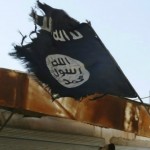by Wayne White
Coverage of the Iraqi crisis from the media to Capitol Hill has been characterized by scary worst-case scenarios and exaggerations of the military capabilities of the Islamic State in Iraq and Syria (ISIL or ISIS). Yet this Islamic extremist group has probably already seized most of the important Iraqi real estate it is going to get. It is vital for the US to avoid simply doing Prime Minister Nouri al-Maliki’s sectarian dirty work for him and returning Iraq to its previously miserably unbalanced status quo. Under the circumstances, however, avoiding that misstep poses daunting challenges.
The successes of ISIS in Iraq do represent a dicey problem for Iraqi authorities in Baghdad and the Kurdish Regional Government (KRG) in the north. ISIS now commands the majority of Iraq’s Sunni Arab heartland as well as a large swathe of mixed ethno-sectarian areas, albeit those with substantial Sunni Arab populations. However, very little territory remains outside ISIS’ current holdings where a Sunni Arab extremist movement would be received with open arms or even passive resignation.
Collapse of dysfunctional army units
Admittedly, the performance of Iraqi Army units assigned to Sunni Arab areas like Mosul has been dismal. Retreating in the face of a few thousand lightly armed militants largely without a fight would have been bad enough. However, the loss of all cohesion, mass desertion, and the abandonment of valuable armaments, ammunition, and equipment compounded the collapse and gave additional advantages to ISIS.
These events revealed just how badly crippling internal problems have undermined the Iraqi Army. This has been especially so since Iraq’s dominant Shia establishment made it effectively impossible for American military advisors and trainers to remain in Iraq beyond the US withdrawal in 2011.
Throughout the ranks, the army has suffered from a high degree of politicized, sectarian, or bribe-generated appointments and promotions, debilitating corruption, and a severe lack of intelligence concerning Sunni Arab areas of the country. Its political favoritism and corruption appear to exceed what prevailed during the Saddam Hussein era. The units that collapsed apparently had no clue ISIS was about to attack Mosul. There have also been suggestions that self-serving unit commanders were more concerned about their personal safety than rallying their troops.
Tamping down the panic
As I noted on June 11, Maliki and his cronies woefully underestimated Sunni Arab tolerance for and potential pushback against years of exclusion and abuse. Now, however, a stunned and reeling Iraqi government probably is overestimating ISIS. Correspondingly, in the wake of its run of unexpectedly easy successes, ISIS might well be returning the favor by underestimating Iraqi Army units and militias in Baghdad.
In any upcoming fighting in Baghdad and the south, ISIS would be far more vastly outnumbered than it was in Mosul and likely to encounter armed Shia elements mustering quite a bit of fanaticism of their own. Only one portion of the army was routed in the north; a city many times the size of Mosul would be a huge mouthful for so small a force of ISIS fighters; and Iranian combatants could very well join the fight.
Moreover, despite Senator Lindsey Graham’s comment yesterday that the US “should have discussions with Iran” about the Iraq crisis, this may be irrelevant. Whether talks occur or not, Tehran, already closely aligned with the present Iraqi government, will likely act as it sees fit in Iraq to serve Iranian interests — regardless of US views on the matter.
Finally, if, as expected, the US commences air strikes, ISIS’ task of moving farther south would be that much more daunting. Near the top of the target list of those anticipated US air (and drone) strikes should be major pieces of military equipment seized by ISIS in the north. That would prevent ISIS from deploying them over the border into Syria (already in progress) or putting them to use in its upcoming clashes with Iraqi government forces.
Homeland imperiled by ISIS gains?
Those harping on ISIS’ “threat to the Homeland” are exaggerating that aspect of the problem. Since adopting the ISIS moniker in April 2013, and during operations by its antecedents since January 2012 in Syria (and going back 10 years in Iraq), ISIS has posed little threat to US interests outside Syria and Iraq.
Of late, its efforts have been consumed by its struggle to overthrow the Assad regime in Syria, combat moderate and other Islamist rebel rivals in Syria, and recently moving against the Iraqi government. There is a threat to the US to consider, but that is likely to emerge further down the line (but, ironically, could be heightened by US air strikes against ISIS in defense of Maliki & Co.)
One potential direct threat to the US that has also existed as part of the Syrian rebellion since 2012 is that of numerous US and other Western European citizens fighting with ISIS and the extremist al-Nusra Front. The prospect of those militants entering the US at some point (US visa requirements are typically waived for Western Europeans) does pose a threat. That threat is magnified by the difficulty Western intelligence and law enforcement agencies have had in gathering precise data on the identities of such individuals.
Trying to harness the Maliki government
Extracting substantial change in the Iraqi government’s abusive behavior toward its Sunni Arab community poses an extremely tough challenge for US policymakers. Holding back US air and other military support to secure this agreement could render getting assurances the easiest part of this endeavor.
If substantial portions of Sunni Arab Iraq were recovered from ISIS, it is difficult to envision how Iraqi government compliance with a more tolerant policy could be monitored reliably. And accountability is critical; Maliki has broken such pledges before. In fact, it would be best all-round if Maliki could be dumped as prime minister in the ongoing negotiations to form Iraq’s post-election government, but there are no indications that his Shia backers would cooperate.
Further complicating this crucial issue, the upcoming mainly sectarian face-off will inevitably result in atrocities on both sides. Already, ISIS has claimed and videoed its execution of large numbers of captured Iraqi soldiers, inflaming the atmosphere. The recruitment of Shia volunteers (with many hardened Shia militiamen undoubtedly among them) along with the possible employment of elite Quds Force cadres from Iran has also been reducing Baghdad’s control over the behavior of its own combatants.
Atrocities will undermine the ability of even a well-intentioned government in fielding a policy of communal toleration. Even worse, instead of a fast-paced government campaign to drive ISIS out of most of its Iraqi holdings, portions of the coming fight might resemble the more prolonged and grueling 2003-08 US-Iraqi struggle against the Sunni Arab insurgency and ruthless Shia militias.
Sorting out a workable way to thread this complex needle toward a new Iraqi national sectarian compact should be as high a priority for the Obama administration as military measures meant to defeat ISIS. The international community could perhaps be drawn into the task of monitoring Baghdad’s compliance in the coming years. Still, preventing a return to pre-crisis sectarian hostility is likely to be as difficult as the immediate military task of containing and rolling back ISIS — if not more.
Photo: Carry weapons and waving Iraqi flags, volunteers join the Iraqi army to fight militants from the radical Islamic State of Iraq and Syria (ISIS) in eastern Baghdad June 15, 2014.





The old plan of US-Israel to break up Iraq is back at the front. While Obama is thinking about what to do, the country is been divided , just like Syria has been.
Israel can rejoice, there are no more Arab armies they need to worry about. They have all been weakened or destroyed.
I would be surprised if Obama intervenes at all. Drones or not, he wants to please the Saudis who have applauded the ‘revolution’ and would love to see a Wahhabi state within Iraq that they could feed with their ideology and money. The insurgents are 100% funded by Gulf private entities who are not overlooked by their government.
Qatar and Saudi Arabia are now reassuring the US administration that these so called terrorists are harmless and that they can be easily tamed. The areas in Iraq they have occupied can easily become a haven for Sunnis ‘oppressed’ by the Shia dominated government.
While happy with the possibility of becoming a country, the Kurds are the ones who will object to have an Islamist wahhabi neighbor. While the Shias want to protect their holies cities, the Kurds want to protect their oil fields and their pipelines to Turkey.
The Turks do not want the breakup of Iraq because it will mean that Kurdistan will become a country and that could lure their own kurdish citizens to want to merge with it.
Therefore we have on one side Iran, the central Iraqi government, Syria, Turkey (and Jordan) who want to stop the Islamists so as to prevent the breakup of Irak. On the other side we have Saudi Arabia, Kuwait, the USA, Israel who would not mind seeing Iraq breakup as long as the islamists are kept under control, unless they attack US intererest in the region. Until now they haven’ so Obama will stay put and let the iraqis kill each other while Navy Pillay will repeat that these a re ‘war crimes’
The Moslem Brotherhood lost the Arab Spring, will the West and their Arab allies let the Takfiris win it?
Here we go again. Out with the old, in with the new. One has to ask/wonder, if all this hasn’t been in the works by the various players? I don’t just mean the ISIS or ISIL, but everyone. One thing is for sure, who ever the planners be, they sure don’t rate as professionals, but rank pseudos, IMHO.